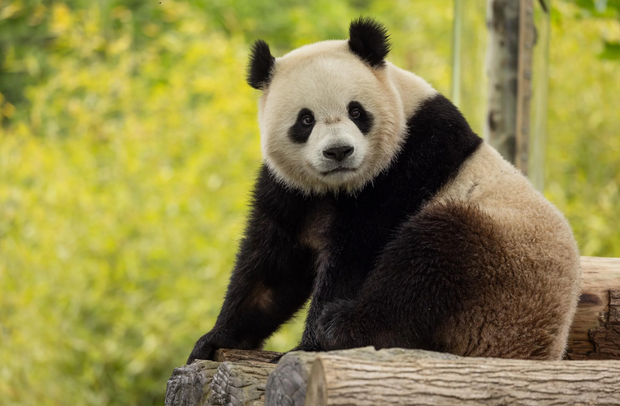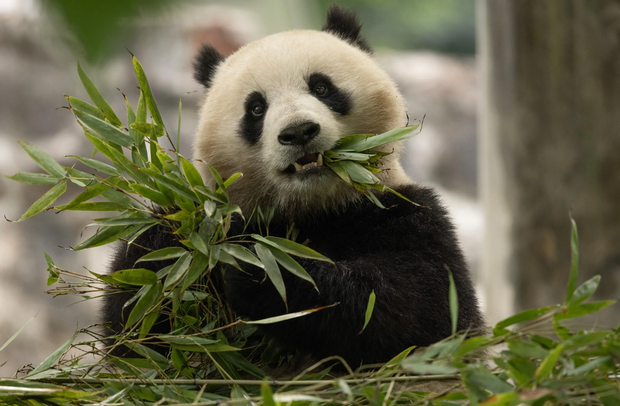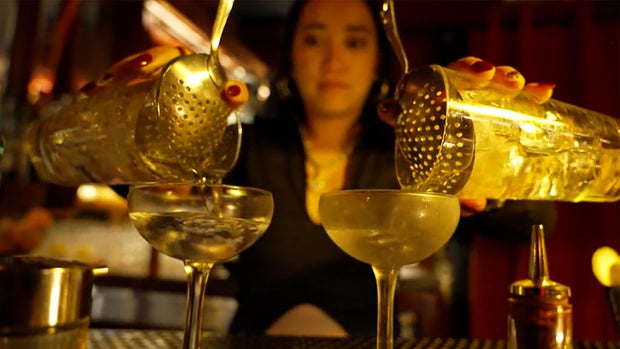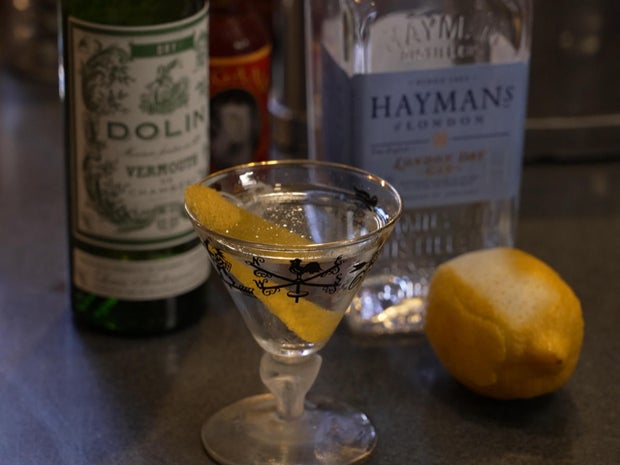CBS News
2 new giant pandas are returning to Washington’s National Zoo from China

Washington’s National Zoo is preparing to welcome a pair of new giant pandas by the end of the year about six months after it sent its three pandas back to China.
The Smithsonian’s National Zoo and Conservation Biology Institute was previously home to Mei Xiang and Tian Tian, who were on loan from China for a research and breeding program. The two pandas and their baby, Xiao Qi Ji, won’t be returning, but visitors will soon be able to meet Bao Li and Qing Bao, the zoo said in a news release.
Bao Li, a 2-year-old giant panda, is the grandson of Mei Xiang and Tian Tian.
Roshan Patel, Smithsonian’s National Zoo and Conservation Biology Institute
The second panda, Qing Bao, is also 2 years old.
Roshan Patel, Smithsonian’s National Zoo and Conservation Biology Institute.
Both were born at the China Conservation and Research Center for the Giant Panda. They will be transported to the United States by FedEx, which has previously shepherded pandas between the U.S. and China.
As the pandas return, so too will the zoo’s Panda Cam, which allows people around the world to check in with the pandas in real-time, according to Lonnie G. Bunch, the Secretary of the Smithsonian Institution.
Pandas were first sent to D.C. in 1972 to help breed and continue the species. In a video shared on social media to announce the return of the pandas, zoo official Brandie Smith referred to the program as “one of our biggest conservation success stories.”
Just a few zoos hosted the pandas while the program was in effect, including the National Zoo, the Memphis Zoo in Tennessee, and the San Diego Zoo in California. All three zoos returned their pandas as loan agreements lapsed and diplomatic tensions between the U.S. and China heightened. The last pandas in the U.S. are at Zoo Atlanta and are expected to go back to China between October and December.
A new pair of pandas is also expected to be sent to the San Diego Zoo as early as the end of this summer. The China Wildlife Conservation Association has also signed cooperation agreements with a zoo in Madrid, Spain, and was in talks for such an agreement with a zoo in Vienna, Austria.
Pandas have long been a symbol of friendship between the United States and China since the first ones were sent to the National Zoo in 1972 ahead of the normalization of relations between the countries. The zoos also helped breed the pandas and boost the population of the species.
There are just over 1,800 pandas left in the wild, according to the World Wildlife Fund, and although breeding programs have increased their numbers, the panda’s survival is still considered at severe risk.
Zoos typically pay a fee of $1 million a year for two pandas, with the money earmarked for China’s conservation efforts, according to a 2022 report from America’s Congressional Research Service.
CBS News
What makes a martini a martini?

Watch CBS News
Be the first to know
Get browser notifications for breaking news, live events, and exclusive reporting.
CBS News
What makes a martini a martini?
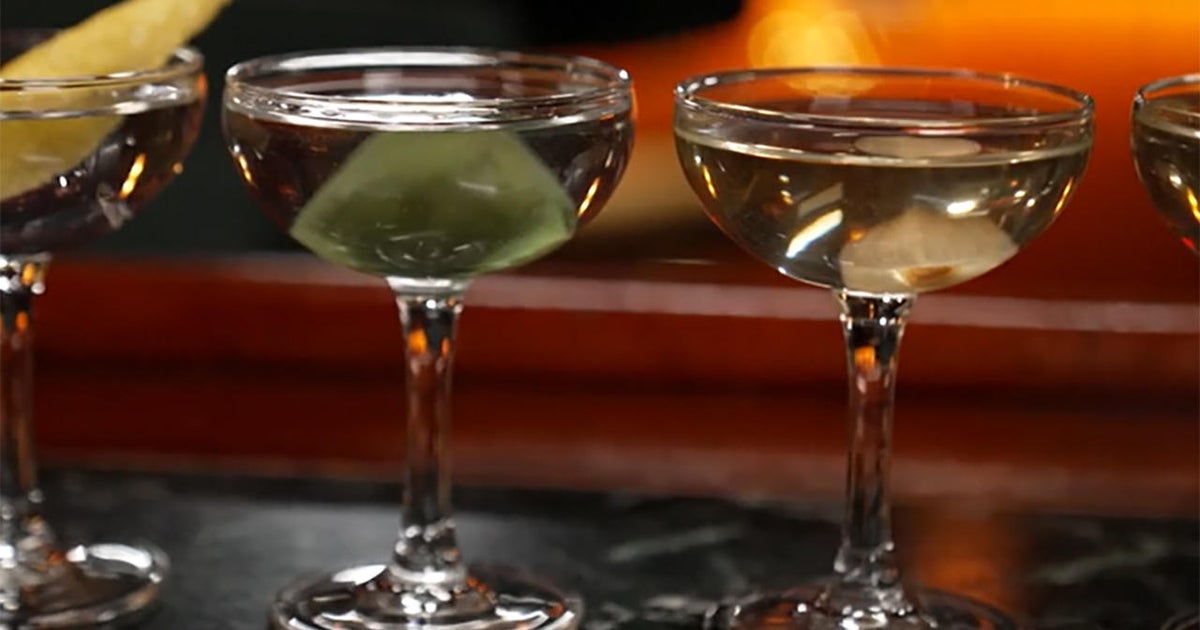
Nowadays, what makes a martini a martini? Robert Simonson, who wrote a book about the martini, said, “It’s funny: it’s strict and loose at the same time.”
Ten Speed Press
Everyone seems to have an opinion about the cocktail: “Ingredients, proportions, garnishes – it’s all subject to debate,” Simonson said. “I’m a purist. I would think it needs to be gin and vermouth. But I’m willing to bend and say, ‘Okay, vodka and vermouth as well.’ [However,] if there’s no vermouth in there, I don’t know how you can call it a cocktail.”
Simonson says the martini was probably named after a vermouth company. It was invented in America in the 1870s or ’80s when bartenders mixed gin with vermouth, a fortified wine made with herbs and spices. “It’s a very big player in cocktail history,” he said.
In the early 20th century, the “very-dry” martini became very-popular: Ice cold gin or vodka, garnished with a lemon twist, or an olive, or an onion, but only a little vermouth (or maybe not even a little).
Samantha Casuga, the head bartender at Temple Bar in New York City, says the reason why many people might not want vermouth in their martini is because, for years, vermouth was stored improperly. “It should be in the fridge,” she said.
CBS News
Casuga’s classic martini is two parts gin, one part vermouth, with a twist of lemon. She suggests that you probably shouldn’t order it the way James Bond does – shaken, not stirred. Casuga says she’s always stirring, but some people like the show behind the bar when a bartender shakes their cocktail. “Definitely, people love a good shake,” she said.
People also love to have a martini made just the way they want it. But Casuga understands why they might be so specific: “To have your own preferences, not only listened to and then executed, is, like, that’s luxury itself.”
Writer Robert Simonson says that a martini can also add a little luxury to your Thanksgiving. “It actually makes very good sense for Thanksgiving,” he said. “It will whet your appetite for the meal to come.
“There are very few American inventions more American than the martini. So, an American holiday, American drink.”
CBS News
For more info:
Story produced by Mary Raffalli. Editor: Remington Korper.
“Sunday Morning” 2024 “Food Issue” recipe index
Delicious menu suggestions from top chefs, cookbook authors, food writers, restaurateurs, and the editors of Food & Wine magazine.
CBS News
NATURE: Turkeys in South Dakota

Watch CBS News
Be the first to know
Get browser notifications for breaking news, live events, and exclusive reporting.


